[vc_row full_width="stretch_row" full_height="yes" css=".vc_custom_1484056734087{background-position: center !important;background-repeat: no-repeat !important;background-size: contain...
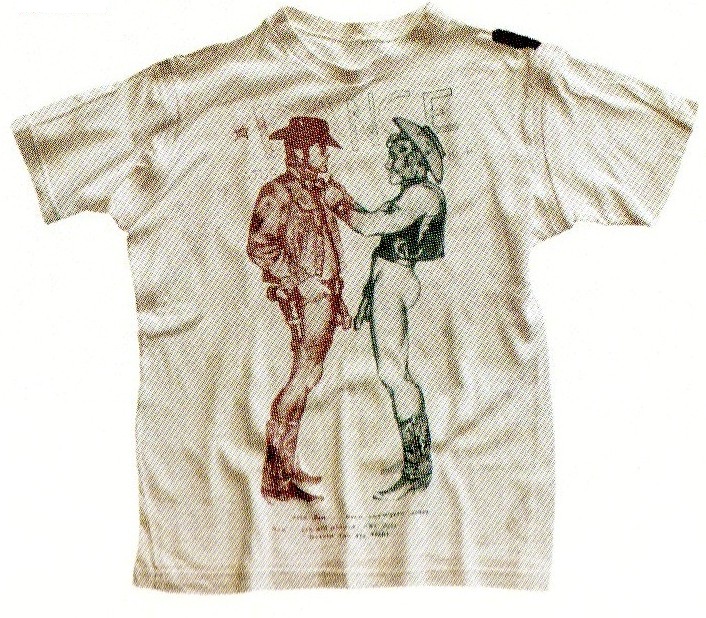

[vc_row full_width="stretch_row" full_height="yes" css=".vc_custom_1484056734087{background-position: center !important;background-repeat: no-repeat !important;background-size: contain...
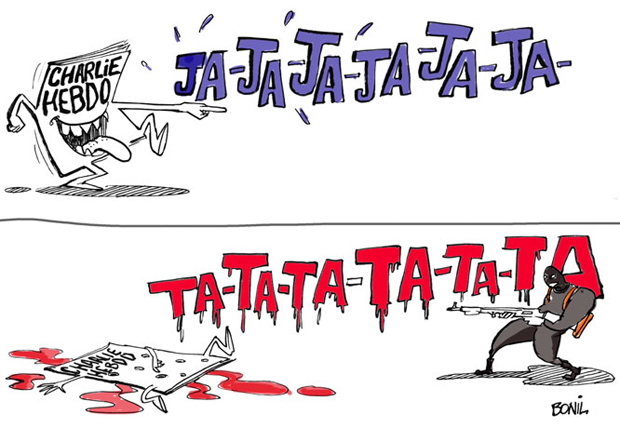
On 7 January 2015, two gunmen entered the offices of Charlie Hebdo and murdered 12 people, including most of the senior editorial staff. The attack was in reprisal for the satirical magazine’s publishing cartoons of the prophet Mohammed.

A Syrian citizen journalist on the realities of reporting in a country where a pseudonym and bulletproof vest offer little protection from constant danger

Linguist and newspaper columnist, Sevan Nişanyan has found himself being locked up for 16 years after being subjected to a torrent of lawsuits relating to a mathematics village he was building
[vc_row full_width="stretch_row" full_height="yes" css=".vc_custom_1481647350516{background-image: url(https://www.indexoncensorship.org/wp-content/uploads/2016/12/magazine-cover-subhead.jpg?id=82616) !important;background-position: center...
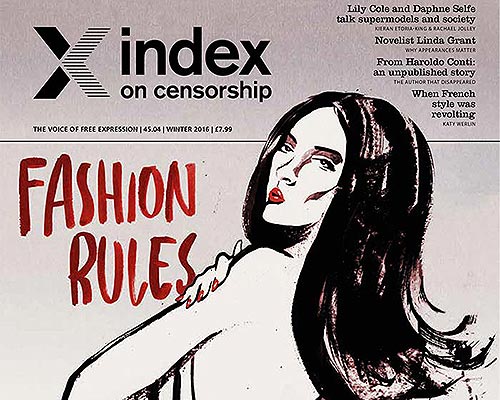
[vc_row][vc_column][vc_custom_heading text="Contributors include Lily Cole, Daphne Selfe, Linda Grant, Bibi Russell, Katy Werlin, Jang Jin-sung, Maggie Alderson and Eliza Vitri Handayani"][vc_row_inner][vc_column_inner width="1/2"][vc_column_text]...
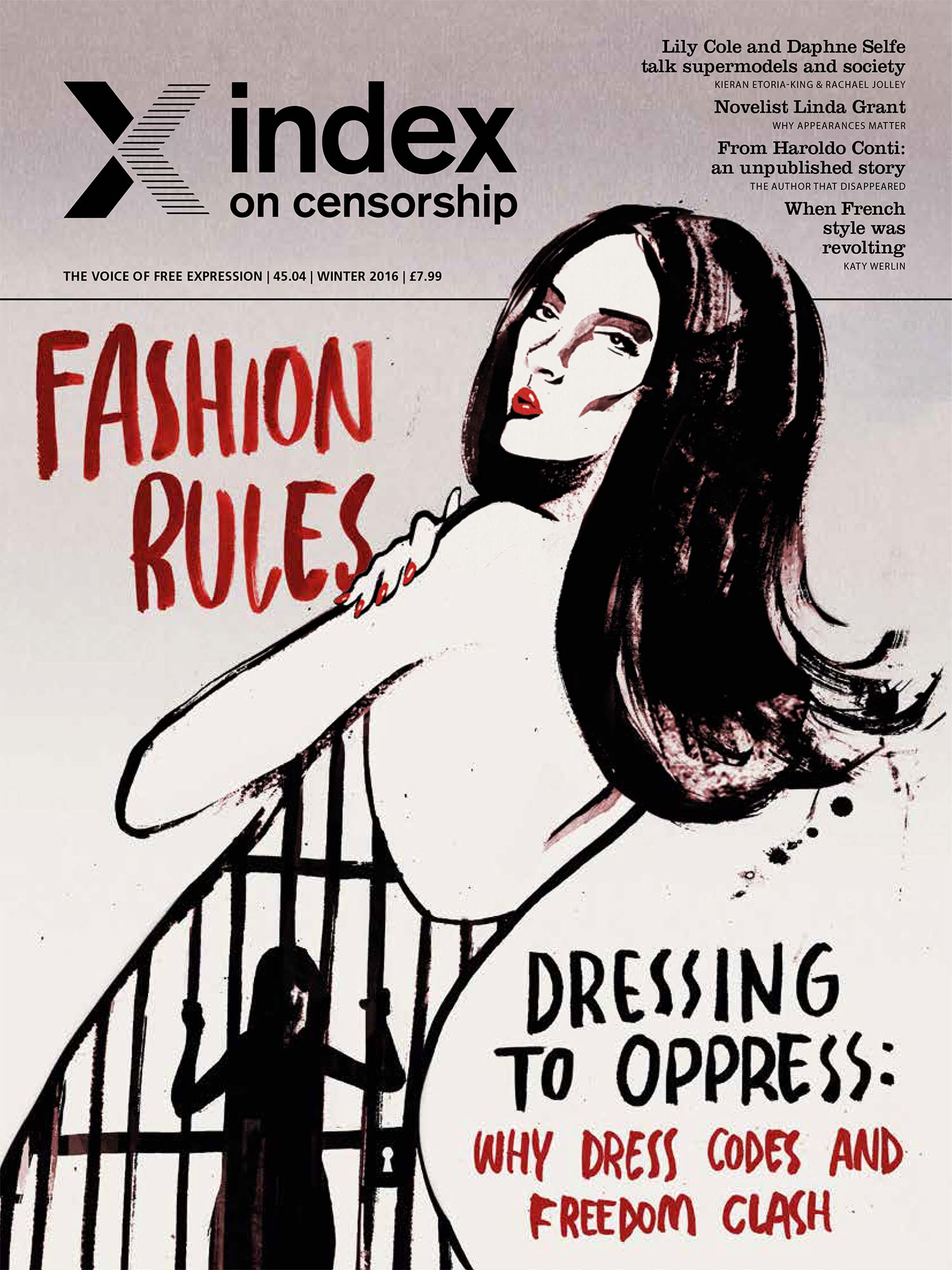
nterviews with Lily Cole, Paulo Scott and Daphne Selfe, articles by novelists Linda Grant and Maggie Alderson plus Eliza Vitri Handayani on why punks are persecuted in Indonesia. Special report on clothes and freedom, how Shakespeare challenges the censors, and assessing Correa’s free speech heritage.
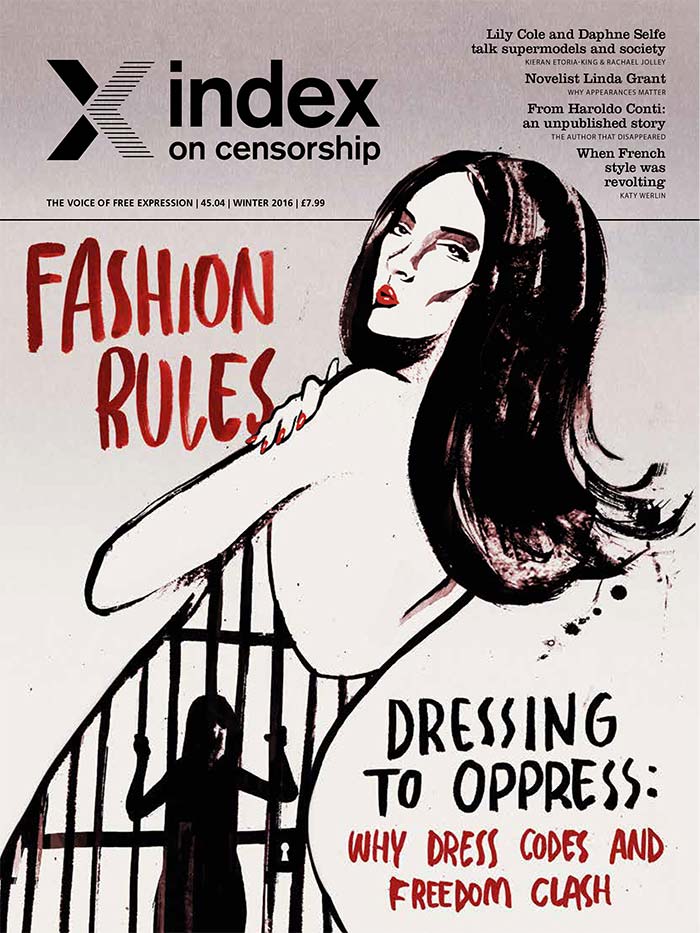
[vc_row][vc_column][vc_column_text] Join Index on Censorship for a drinks reception and conversation to celebrate the launch of our latest award-winning magazine, Fashion Rules, Dressing to oppress: why dress codes and freedom clash. The evening...

Important year for freedom of expression coverage is being recognised in this BSME award, says Jolley.

The autumn 2016 Index on Censorship magazine explores anonymity through a range of in-depth features, interviews and illustrations from around the world. Contributors include former CIA agent Valerie Plame Wilson, journalist John Lloyd, Bangladeshi blogger Ananya Azad and philosopher Julian Baggini. This issue also has a thoughtful essay by novelist Hilary Mantel and illustrations by Molly Crabapple.
A quarterly journal set up in 1972, Index on Censorship magazine has published oppressed writers and refused to be silenced across hundreds of issues.
The brainchild of the poet Stephen Spender, and translator Michael Scammell, the magazine’s very first issue included a never-before-published poem, written while serving a sentence in a labour camp, by the Soviet dissident Aleksandr Solzhenitsyn, who went on to win a Nobel prize later that year.
The magazine continued to be a thorn in the side of Soviet censors, but its scope was far wider. From the beginning, Index declared its mission to stand up for free expression as a fundamental human right for people everywhere – it was particularly vocal in its coverage of the oppressive military regimes of southern Europe and Latin America but was also clear that freedom of expression was not only a problem in faraway dictatorships. The winter 1979 issue, for example, reported on a controversy in the United States in which the Public Broadcasting Service had heavily edited a documentary about racism in Britain and then gone to court attempting to prevent screenings of the original version. Learn more.